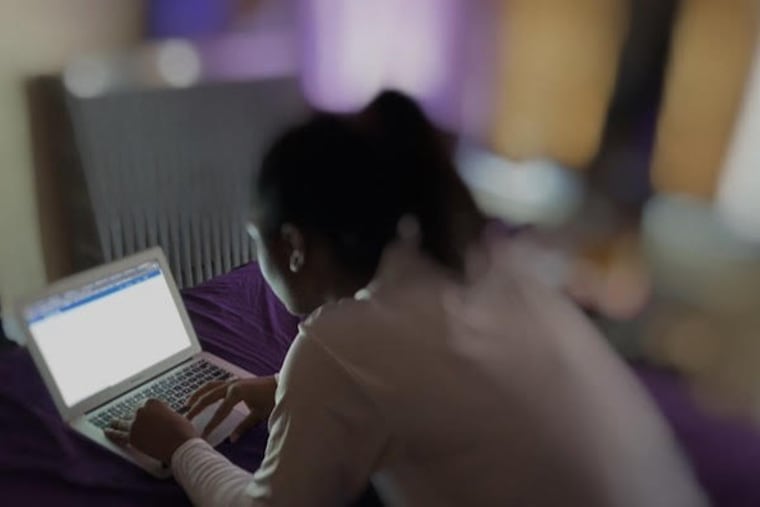Wake up. Eat. Zoom. Repeat: The daily struggle of virtual high school | Opinion
None of us has to pretend that virtual school is normal or easy.

Wake up, eat breakfast, join Zoom meetings. Eat lunch, join more Zoom meetings, sleep.
Ditto the following day and the remaining days of any given week.
This happens to be a typical schedule for most Philadelphian high school students who have been confined to their homes during the global pandemic. For many of us, it can be stressful to wake up and go through the same uneventful routine each day. As a junior at William Penn Charter School in Philadelphia, it would be an understatement to say I have found virtual school difficult.
» READ MORE: COVID-19 meant mental health challenges in 2020. Here’s how to get help in 2021
It may not appear as though high school students have been struggling with online classes, but remote learning comes with an array of issues, students everywhere feeling the weighted impact.
“People think online school is easier than the actual experience,” said Anthony Rivers Jr., a junior at LaSalle College High School in Wyndmoor. “In reality, I would rather wake up every morning and spend eight hours in a building with 500 people rather than spending eight hours in my room in front of a computer screen.”
High school is an important part of adolescence. It’s not only vital to a student’s academic success and future but also vital to their social development. There is a stark difference between sitting in a classroom as opposed to sitting in front of a computer screen. This difference can result in a lack of participation, enthusiasm, and overall growth.
Mali James-Gordon, a junior at Penn Charter in Philadelphia, says she feels less confident when asking teachers questions during online meetings. “Online, it feels like the attention is fully on you, and I get worried that what I’m saying is wrong, so I would rather sit back and just listen.”
Recent studies have suggested that high school students in quarantine are beginning to suffer from mental health issues. And in recent months, declining mental health has become a dominant topic on social media as students express their feelings about the disruptions COVID-19 has created in their daily lives.
“Anyone else used to stay organized, did their homework, and didn’t procrastinate, and now all you do is go on your phone during classes...stopped your normal habits, don’t feel like hanging out with people, and just sleep/go on your phone all day?” asked one TikTok user.
Such practices can point to early signs of depression, anxiety, and other emotional disorders. Many teenagers are feeling anxious and depressed due to the pandemic, and the stress that comes along with school closures have made matters worse.
So how can students find peace and stay mentally healthy in these uncertain times?
Gabbi Polite, a student at Penn Charter, deals with her negative feelings through art and social contact: “I make playlists of my favorite songs because it’s really relaxing, and, of course, I keep in touch with my friends through FaceTime or texting.”
Perhaps the most important thing to do to take your mind off stress is to talk with someone. Whether it is a mental health professional, a parent, a helpline, or even your pet, it’s important to address your feelings and try to avoid negative thoughts. Therapy has long been an effective tool for behavioral health and is increasingly accessible virtually.
Most of all, we need to remember that this time is arduous for both students and educators. We need to encourage each other to reach out for help in this difficult time. None of us has to pretend that virtual school is normal or easy.
Amani Rivers is a junior at William Penn Charter School and a participant in the Acel Moore High School Journalism Workshop, which first published a version of this article.